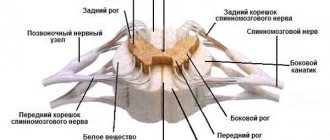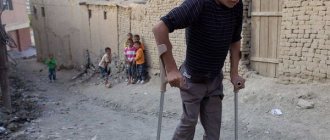Some people, under the influence of mental trauma and stress, experience disorders that manifest as mental problems. These deviations, varied in symptoms, are called reactive psychoses (RP) in psychiatry. Signs of disturbances can be short-term (up to a day) or long-term, lasting several months. Our mental health center “Leto” treats patients with this pathology. We provide them with the necessary level of attention, carry out diagnostics and individual therapy for the identified disease. If necessary, we provide consultation and support at home.
What provokes the development of reactive psychosis
Most often, RP manifests itself in situations that create life-threatening circumstances.
Psychiatrists identify the following reasons:
- Accidents and disasters.
- Natural disasters.
- Hostilities.
- Loss of loved ones.
- Financial desperate situations.
- Threats, psychophysical violence.
The severity of clinical manifestations of disorders depends on two factors:
- Features of the mental structure of the patient’s personality (character).
- The significance of the traumatic situation for a particular person.
Additional factors contribute to the development of reactive psychosis:
- Overwork.
- Insomnia.
- Traumatic brain injuries.
- Substance abuse.
- Transfer of severe infectious diseases and neurosomatic pathology.
The disease is especially severe in children and people entering menopause.
Classification of reactive psychoses
Psychotic disorders in this category are distinguished by their severity.
On this basis, doctors at our clinic identify the following forms:
- Acute (shock). There are two types: hypokinetic and hyperkinetic.
- Subacute.
- Lingering.
Determining the option is important for the doctors of the center due to the peculiarities of constructing a treatment plan, which differs for each type of disease.
Features of reactive depression
Reactive depression does not cause sudden mood swings during the day, unlike endogenous depression. Mentally, a person constantly replays the events that led to what happened. Mental anguish begins from the inevitability of this misfortune, from the inability to independently influence the situation.
Photo by Aricka Lewis on Unsplash
Gradually, the manifestations of acute depression subside and become less pronounced, but any hint of grief can lead to new outbreaks. During the day, while at work, the patient is distracted, but with the onset of evening and night he is haunted by nightmare visions. This can continue for a long time. Over time, depressive disorders are reduced to a minimum or disappear altogether, leaving no consequences or changes in the person’s soul.
But there is another type of primary reactive depression called endogenous. This is a condition in which a person experiences mental disorders that provoke melancholy.
Features of the clinical course
Acute reactive psychosis occurs over a period of several minutes to hours.
The hypokinetic form is characterized by:
- Sudden stuporous state.
- Numbness.
- Feeling of horror.
- Inability to move and speak.
Hyperkinetic occurs with:
- Motor and mental excitement.
- Chaotic and disordered movements.
Both forms are accompanied by:
- Twilight clouding of consciousness.
- Partial or complete loss of memory.
- Tachycardia and elevated blood pressure.
- Profuse sweating.
Most often, our doctors have to deal with subacute reactive psychoses.
They appear:
- Psychogenic depression with depression and increased anxiety. In other cases, with tearfulness, dissatisfaction,
- Hysterical variant , which is characterized by theatricality, affectation, demonstrative behavior, often with pseudo-suicidal attempts. This type of psychosis is manifested by multiple dominant syndromes: delusional fantasies, savagery, puerilism (childishness), Ganzer syndrome (mimorism) and others.
- Paranoid, accompanied by figurative delusions with elements of fears and perceptions of threats to one’s own life everywhere. It seems to the patient that everything around him is turned against him. Prying glances, whispers, etc.
- Stupor. In this case, inhibition of speech and movements dominates, which is layered with delirium, hysterical manifestations (stuttering, tremor), and hallucinations.
Protracted reactive psychoses are characterized by sluggish symptoms that last for months and years.
Reactive states are a special group of mental disorders (psychogenies) that develop as a result of mental trauma and reflect the content of a traumatic event.
This is an attempt to adapt the psyche (including the normal one) to extreme stress.
In the current International Classification of Diseases, Tenth Revision, there is no separate section dedicated to psychogenies; they are scattered across different blocks of ICD-10.
The prevalence of reactive psychoses in the population remains to be determined. It is known that women suffer from them approximately twice as often as men. Reactive depressions account for 40-50% of all reactive psychoses.
In our practice, we often encounter the following diagnoses: “Depressive episode”; "Mixed disorder of emotions and behavior due to adjustment disorder."
Patients with psychogenic illness tend to focus on the internal re-experiencing of a misfortune that recently happened to them. These experiences are extremely valuable for them. But in typical cases, they do not want to discuss what happened with strangers (in particular, with psychiatrists). On the contrary, when asked the appropriate questions, patients become withdrawn and may stop talking altogether. Low mood, with ideas of self-blame. Sometimes externally blaming tendencies predominate. There is often anxiety. Some patients develop reactive paranoid - fear, suspicion, thoughts of persecution, possible murder. Mental disorders that occur during a reactive state are not easy to distinguish from attitudinal behavior, when for one reason or another it seems beneficial to the patient to feign mental illness. According to our observations, attitudinal behavior can be combined with real symptoms.
In PKB No. 5 of the Moscow City Health Department, the patient is usually in a reactive state until he recovers from a temporary painful disorder. He is coming to us, being under investigation on suspicion of an offence. He has a forensic psychiatric examination under his belt, during which it was impossible to resolve the question of his sanity precisely because of his reactive state, which, in turn, is a consequence of the stress of the forensic investigative situation. In addition, we must not forget about the stress that a person experienced during a socially dangerous act (whether it was committed by him or someone else).
Treatment in almost all cases includes antidepressants, and, if necessary, antipsychotics. Psychotherapy can help such patients, but there are significant difficulties in its implementation due to attitudinal behavior.
The prognosis is usually favorable. Within a relatively short period of time (usually within a few months), the psychogenic disorder is leveled out, although this process is not always smooth. We have to rather talk about a wave-like attenuation with a return of symptoms.
It should be remembered that reactive states occur not only against the background of health, but also in patients suffering from chronic mental illnesses. The clinical picture may be influenced by the underlying psychopathological process. But in many cases, psychogeny obscures the characteristic manifestations of schizophrenia or other long-term mental illness.
Diagnostics
Establishing a diagnosis in our clinic is based on examination and interview of the patient, and the involvement of his relatives in the process. The doctor identifies the causative factor and establishes its connection with the detected symptoms.
The main diagnostic difficulty lies in differentiating reactive psychoses from:
- Schizophrenic disorders.
- Bipolar disorder.
- Complications associated with substance abuse.
- Psychogenic depression.
- Delirium characteristic of other diseases.
Pathogenesis
As a result of psychotrauma, inhibition occurs in the cerebral cortex and its subcortical structures.
The specific clinical form of psychosis depends on the spread of inhibition. In acute and prolonged psychoses, the main pathogenetic factor is the pathodynamic structures responsible for the extent of inhibition in the cerebral cortex. In this case, the main neuroassociative stream is involved in a given point of the cortex and remains fixed there. This is the mechanism of one of the main symptoms of reactive states - the pathological fixation of patients’ attention on traumatic thoughts. In psychogenic stupor, inhibition from the pathodynamic structure is concentrated in the motor (cortical and subcortical) parts of the brain, when, for example, in hysterical psychoses (with impaired consciousness) pathological excitation appears in them.
The experiences of patients with reactive psychoses depend on the functional ability of the pathodynamic structure itself. When it is fixed in pathological arousal, patients are reliably fixed on psychotraumatic circumstances; and vice versa, in the presence of phase states, patients experience psychotrauma in a positive way for themselves, as is observed in some psychogenic twilight states and delusional fantasies.
When the pathodynamic structure transitions into an inhibitory state, patients “forget” everything that is directly or indirectly associated with psychotrauma and even the fact of its presence (the mechanism of affectogenic amnesia in delusional fantasies, pseudodementia, puerilism, etc.).
Reactive paranoid syndrome, in the cerebral cortex, causes a number of isolated from each other, but associated with the pathodynamic structure of the diseased points in the cerebral cortex, which determines the psychogenic content of their specific delusional ideas in these patients. In subacute paranoid reactive psychoses and in cases of psychogenic delusional psychosis, in the cerebral cortex there is a functionally isolated single powerful pathodynamic neuroassociative structure in a state of inert excitation, switching over the main neuroassociative flow.
The differences in the clinical picture and further course of the disease are determined by the fact that the paranoid reaction is formed under the influence of acute psychotrauma on the basis of any phenotype of the nervous system, while in psychogenic paranoid delusions the pathodynamic structure is formed under conditions of chronic psychotraumatization on the basis of an initially inert phenotype of the nervous system - paranoid psychopathy.
How to register for our mental health center
You should start by getting advice over the phone. To do this, dial the clinic’s phone number 8(969)060-93-93 . A multi-channel call center line will allow you to quickly connect with an operator. He will listen to you carefully, answer your questions, and give useful advice. He is making an appointment for a medical consultation. The dispatcher will provide information on the cost of diagnostic and treatment procedures. If hospitalization is necessary, you can reserve a place or the entire ward over the phone.
In our hospital we have the following options:
- Standard class (2-3-4 seats).
- Comfortable for 2 people.
- VIP, equipped for one client.
If there is a need, you can call a specialist to your home; we also provide the possibility of transfer and will deliver the patient to the hospital, if necessary, accompanied by a medical professional.
We inform you that we are subject to strict confidentiality. Your stay in our center is carried out in compliance with all rules of anonymity.
Treatment of paranoid syndrome
Treatment of paranoid is determined by the causes and mechanisms of development of the disease, and the individual characteristics of the patient. All this is determined by a psychiatrist during a consultation in the department where the patient is undergoing examination and treatment. The basis of treatment is drug therapy.
Over the past 50 years, drugs with a specific antidelusional effect—neuroleptics—have been successfully used. In addition - neurometabolic therapy and restorative treatment.
Isolation of the patient from external stimuli for the period of acute condition has a great therapeutic effect. Non-drug methods include diet therapy, shock treatment (ECT), cognitive psychotherapy, and exercise therapy.
Treatment of reactive psychoses
After an examination and conversation, our specialists offer patients a treatment plan. First of all, the question of where to undergo treatment is decided: inpatient or outpatient. In acute cases, pharmacotherapy is required.
The patient is prescribed:
- Neuroleptics.
- Tranquilizers.
- Antidepressants.
- Normotimics.
Antipsychotic therapy helps in both acute and subacute, protracted processes. The selection of drugs is especially important for pathologies that last a long time, both in adults and children. In this case, the selection and adjustment of pharmaceuticals is important for recovery. On this basis, it is necessary to visit a doctor even after discharge from the hospital. The specialist must correct any identified change in mental health.
In addition to specific psychotropic pharmacotherapy, clients are prescribed supportive and symptomatic treatment. Psychotherapy occupies a special place in the healing process.
Patients undergo:
- Individual and group psychocorrection.
- Hypnotherapy.
- Sessions for working through feelings, adapting to life conditions.
- Development of defense mechanisms based on the ability to control one’s emotions and thoughts. For this purpose, psychotherapists teach auto-training skills to those recovering.
- Cognitive behavioral psychotherapy.
- The author's methods of influencing consciousness, providing for adaptation and maintaining the adequacy of behavior under stressful conditions.
Psychotherapeutic methods are often combined with drug therapy. The prognosis after treatment is favorable in most cases. After discharge, medical and mental recovery benefits.
Main causes of reactive depression
The main points leading to this disease are severe psychological trauma after suffering stress, against the background of which extensive changes occur in the patient’s life. They can cripple a person with a stable psyche who is not prone to depression and other types of psychological disorders. This disease occurs due to the loss of a loved one or his death, and can also be caused by problems with the law, divorce, financial losses, or one’s own illness.
Photo by Ethan Sykes on Unsplash
Some time ago, due to the global financial crisis, the number of people with this disease increased in the world. The majority lost not only stable jobs, but also regular income to pay loans, lost their housing, personal property and much more.
There are also secondary reasons, which include:
- the fact that the patient previously had mental illness; - heredity; - age and certain character traits.
Cost of services
| CONSULTATIONS OF SPECIALISTS | |
| Initial consultation with a psychiatrist (60 min.) | 6,000 rub. |
| Repeated consultation | 5,000 rub. |
| Consultation with a psychiatrist-narcologist (60 min.) | 5,000 rub. |
| Consultation with a psychologist | 3,500 rub. |
| Consultation with Gromova E.V. (50 minutes) | 12,000 rub. |
| PSYCHOTHERAPY | |
| Psychotherapy (session) | 7,000 rub. |
| Psychotherapy (5 sessions) | 30,000 rub. |
| Psychotherapy (10 sessions) | 60,000 rub. |
| Group psychotherapy (3-7 people) | 3,500 rub. |
| Psychotherapy session with E.V. Gromova (50 minutes) | 12,000 rub. |
| TREATMENT IN A HOSPITAL | |
| Ward for 4 persons | 10,000 rub./day |
| Ward for 3 persons | 13,000 rub./day |
| Ward 1 bed VIP | 23,000 rub./day |
| Individual post | 5,000 rub. |
| PETE | 15,000 rub./day |
This list does not contain all prices for services provided by our clinic. The full price list can be found on the “Prices” , or by calling: 8(969)060-93-93. Initial consultation is FREE!
Detecting a paranoid state
A psychiatrist diagnoses delusional disorders. As a rule, relatives and others are the first to notice improper behavior. They are often the ones who initiate requests for help.
A paranoid person is characterized by a lack of a critical attitude towards himself, that is, the sick person does not realize that he is sick, and, overcome by delusions and hallucinations, behaves absurdly, incorrectly, and often even resists seeing a doctor and treatment.
Sometimes such patients, nevertheless, come for help to a psychiatrist on their own with complaints of insomnia, the feeling that they have been poisoned, “artificially driven crazy,” “voices and sounding thoughts are directed at them,” “forced to do unpleasant things.”
An examination of such a patient by a psychiatrist and acquaintance with his life history is often enough to make a conclusion. Additional studies (pathopsychological examination, tests, electroencephalography, etc.) make it possible to clarify the condition.








